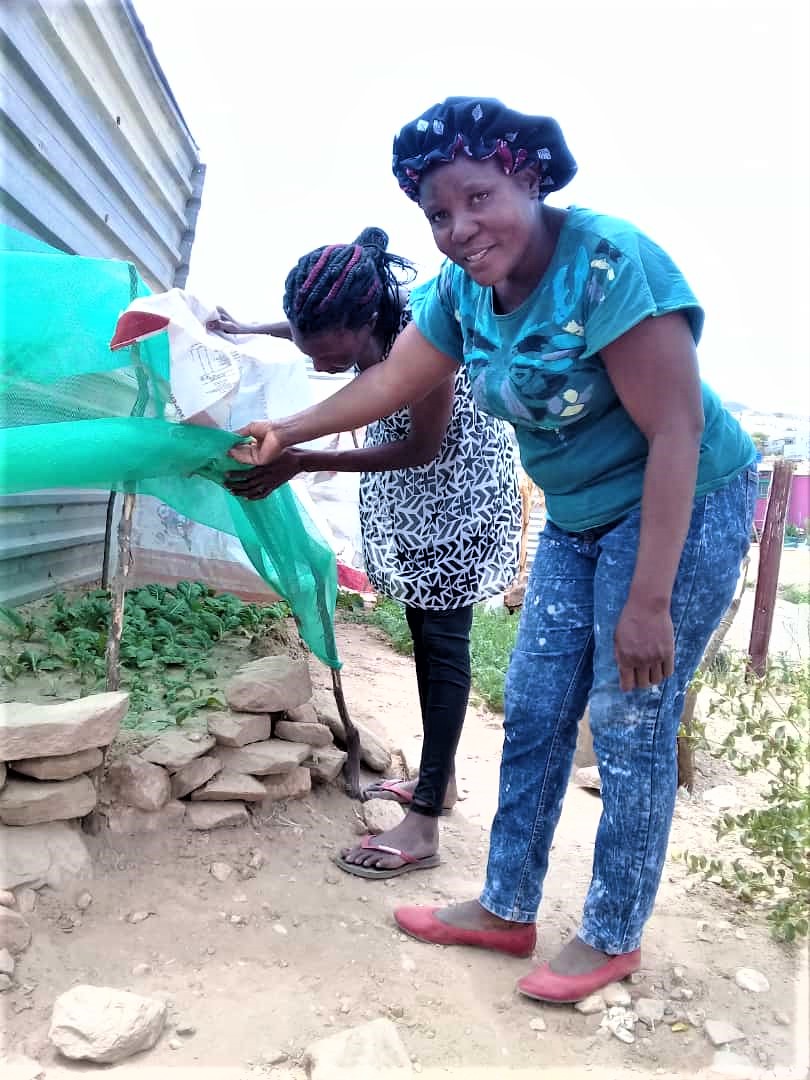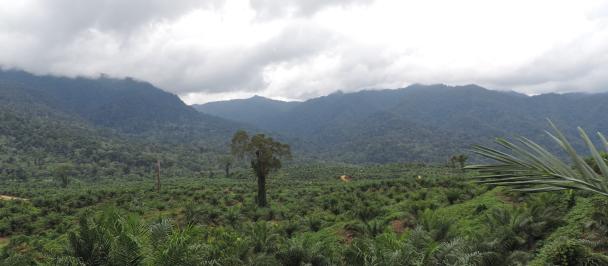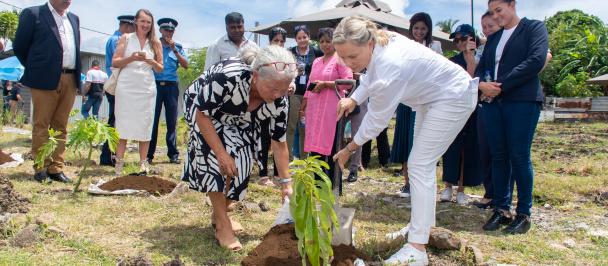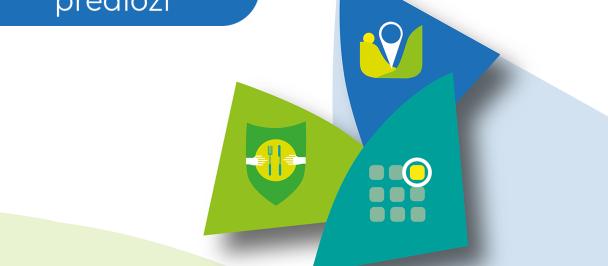Restoring livelihoods and access to food in Namibia
August 15, 2023

Auguste Kankondi (right) tending to her vegetable farm
Auguste moved from her village in Okahao, to Windhoek, in search of a better life for herself and her four children. However, after six years in the city, she found herself still unemployed, struggling to make ends meet. Auguste and her four children live in Goreangab, one of many informal settlements that have sprung up in Namibian cities due to urbanisation. The emergence of COVID-19 further exacerbated her challenges as pandemic reduced employment opportunities .
Amidst these hardships, Farm Okukuna was established within Goreangab, Windhoek within Khomas region. This initiative stemmed from the Build Back Better Urban Agriculture project, which aimed to restore dignity and livelihoods to the urban poor and vulnerable, including women, youths and people living with disabilities. Auguste Kankondi, among several beneficiaries at Farm Okukuna, received comprehensive training in horticulture and compost production as part of the program’s capacity building drive.
“I realised the impact of hunger on my neighbours during the Covid pandemic. So, I took the initiative to teach them how to grow vegetables using discarded tires in my backyard. I believe this is my small contribution to addressing hunger in my community.”
“I have now trained 41 people in Goreangab on how to build food circles and make compost’
With her newfound skills, Auguste not only feeds her family nutritious meals but also generates income by selling her harvest. Her involvement in the Build Back Better Urban Agriculture project has had a ripple effect; she has trained 41 women in Goreangab in horticulture and compost-making. Consequently, several urban gardens have sprouted, contributing to the community’s food security.
The Project in Focus
Strengthening Namibia food systems to recover from emergencies and disease-related shocks through the Build Back Better programme (March 2021 – June 2022)
This project supported safe markets and enhancing hygiene infrastructure in informal food markets in response to COVID-19, thereby safeguarding the livelihoods of vendors. It also aimed to restructure the urban informal market sector, enhancing local food-supply-chain mechanisms for sustainable product supply. Additionally, the project enabled the policy framework and boosted the capacity of institutions responsible for administration, regulation, and monitoring of food supply systems.
Key results:
- 78 structures were provided:
o 48 improved food stalls for 48 informal food vendors
o 19 ablution and 11 handwashing station to enhance sanitation. - 4 Urban gardens established, improving food security for 258 direct beneficiaries.
- An E-voucher information system introduced to improve institutional capacities.
- 141 farmers supported with small-scale agriculture input grants.
This project was designed during the COVID-19 outbreak. Subsequently, different needs were identified that could better respond to what was initially projected. The results are therefore representative of the needs identified by the municipalities.
Japan and UNDP as key partners
Throughout this project, UNDP and the Ministry of Agriculture, Water and Land Reform collaborated with the NEC Corporation (Japan) to design and implement an e-voucher information management system using NEC technology.
Thanks to Japan’s unwavering support, UNDP-Japan funded projects are contributing to the realization of the Sustainable Development Goals and Agenda 2030 across the African continent, empowering communities amidst complex and compounding challenges - often in new and innovative ways.
Since its initiation in 1993, The Tokyo International Conference on African Development (TICAD) has fostered dialogue and partnerships for African development hosting eight summits across Africa and Japan, along with numerous Ministerial Meetings.
Working withing the thematic areas of Economy, Society and Peace, Japan and UNDP continue to pioneer innovative solutions, fostering a sustainable, inclusive and secure future for all.

 Locations
Locations

